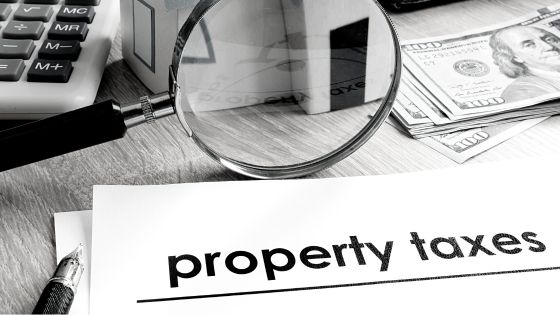Tax time – it’s something you can’t escape from, and if you are planning on selling a commercial property or you’ve sold a commercial property in the last financial year in Australia, it is important to understand any tax implications that come with that process.

There are six main areas that you need to consider:
- Capital Gains Tax
- Depreciation
- GST
- Expenses and deductions
- Holding periods
- Records and documentation
Let’s explore these six areas:
Capital Gains Tax
When you sell a commercial property, you may be subject to CGT on the capital gain you make – that is the difference between the sale price and the original purchase price, plus any related costs like stamp duty and legal fees.
The CGT rate tends to typically be 50% of the gain for individuals, trusts and superannuation funds, while for companies, you are taxed at the full rate.
It is really important to have a chat with your accountant before you put your property on the market so that you have a good understanding of what costs you need to account for. After a sale has gone through, your accountant will also be able to advise how much you need to set aside to pay CGT.
Depreciation
A depreciation schedule outlines the value of assets and how much they have depreciated, or declined in value, over time. It is typically used to calculate any associated tax deductions that can be claimed and take into account factors such as the age of the property, cost of construction and expected lifespan of the building.
When it comes to selling your commercial property, your accountant will consider any depreciation you have claimed as a tax deduction over time, as it may have an impact on the amount of CGT you need to pay.
GST
Did you know that GST may need to be paid on the sale of a commercial property? Generally, these types of property are exempt from GST on sale but it really depends on various factors including the type of property, the purchaser and the intended use of the property.
Again, similar to CGT, it is really important to have a chat with your accountant to find out when GST may apply to you, and after the sale, how much you may need to set aside.
Expenses and Deductions
We know record keeping isn’t always as straightforward as it sounds and it can be very easy to lose that piece of paper you really need for your tax. When selling a commercial property it is really important to keep everything together; real estate agent fees, legal fees and advertising costs may all be tax deductible which, in turn, can reduce your overall capital gain and the amount of CGT you owe. Any extra money you don’t need to pay out is a good thing.
Holding Period
This is an area you should have discussed with your accountant when buying commercial property, but how long you hold your property can impact how much CGT you owe on sale. If you’ve held the property for more than 12 months, you may be eligible for a CGT discount, reducing how much of the capital gain is taxed.
Before you put your commercial property on the market, make an appointment with your accountant to see what is best for you, tax-wise, in terms of whether you hold the property for a bit longer before you sell, or whether it’s worth selling now.
Records and Documentation
Again, much like your expenses, it’s really important to have accurate records of the sale of the property, and even of the purchase of the property. Make sure you keep, in a safe place, the contract of sale, settlement statement and any other document related to the sale of the property. Your accountant will need this documentation to be able to calculate your capital gain and any other tax liabilities.
Selling a commercial property certainly isn’t as straightforward as selling a residential property – it can be a complex process and there can be significant tax implications. Before putting your property on the market, it is essential to sit down with your accountant to get on top of any tax and other payments you will be liable for. Doing this allows you to make informed decisions on when and how to sell your commercial property.
The information contained in this article is general in nature and does not take into account your personal situation. You should consider whether the information is appropriate to your needs, and where appropriate, seek professional advice from your accountant.






















